Why a Peer Coordinator Makes a Difference
 As a new CASA, accepting your first case can be daunting. CASA volunteer advocate Laurel Appleton walks us through how she found her comfort zone on her first day of court, and how it led her to apply to be a peer coordinator, a designated mentor for new volunteers.
As a new CASA, accepting your first case can be daunting. CASA volunteer advocate Laurel Appleton walks us through how she found her comfort zone on her first day of court, and how it led her to apply to be a peer coordinator, a designated mentor for new volunteers.
Laurel knew that she wanted to become a CASA volunteer advocate many years before she applied. As a former foster parent who adopted children from the NH system, Laurel’s children did not benefit from the support of a CASA volunteer advocates. When she learned that type of support existed, she promised herself that when her children were grown, she would be a voice for children in need.
Laurel became a CASA volunteer advocate 2016. In the past two years she has represented eight children from three different families. She was assigned to her first case just two days after completing her volunteer training. After accepting the case, she was in court for the first time the very next day.
As a new CASA volunteer advocate, you are always accompanied the first few times you attend court by either a CASA program manager or a peer coordinator. Waiting for Laurel in court that day was Carl Dias, an experienced volunteer advocate who was ready to guide her through her first hearing.
“Carl had everything with him that I had forgotten to bring: the old school CASA business cards that we wrote our info on, a contact sheet, releases, CASA information pamphlets… all the stuff I know now to just automatically carry,” Laurel says. “He supplied me with all of it as if that had been the plan all along; never once pointing out how unprepared I actually was! That one gesture preserved the tiny wisp of confidence I was clinging to.”
That support from Carl made all the difference. Peer coordinators are trained to help new volunteer advocates in all capacities as another layer of support outside of the program manager. They attend court hearings, help edit court reports and provide guidance as volunteer advocates navigate their new role in helping New Hampshire’s abused and neglected children.
“Having someone in your corner who not only tells you; but truly believes that you have been called to this work and are ready to advocate for these children is a gift beyond measure when taking in your first few cases,” Laurel says. “I learned from Carl the importance of our words as CASAs, and the great weight they carry.”
But a peer coordinator, like Carl, and now Laurel, is more than just being a cheerleader, Laurel says. His input was crucial when she began writing court reports.
“I learned what a unique opportunity we have to craft perhaps the one opportunity the Judge will have throughout the life of the case to see a true snapshot of the circumstances a child or a birth family is living in; the setting, the needs, the progress or sometimes, lack of progress,” Laurel says “Our words matter a great deal – we need to choose them well. I have learned from Carl that it is possible to be gracious while painfully detailing inadequacies; to remain compassionate as well as precise. It’s tricky, but very possible.”
Because of the example Carl provided, and her desire to do the same for others, Laurel completed peer coordinator training in 2017 and now helps to guide new CASA volunteer advocates through their first case.
“I hope to pass on what Carl gave to me – the skills, the confidence and the compassion to do what we are called to do in a way that makes each child’s story the focus of the cases we are a part of,” Laurel says. “I often tell people that I became a CASA when I realized that all children in care deserve an advocate. I became a peer coordinator when I realized that all CASA’s deserve a Carl Dias.”

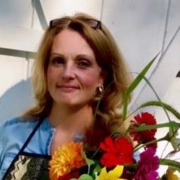
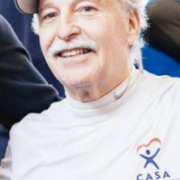
 Steve Friedman is a passionate, committed volunteer and friend to CASA. Between serving on the Snowfest committee, providing marketing opportunities through his position at The River 92.5 radio station, and networking on behalf of CASA near and far, he is truly a gift to the organization.
Steve Friedman is a passionate, committed volunteer and friend to CASA. Between serving on the Snowfest committee, providing marketing opportunities through his position at The River 92.5 radio station, and networking on behalf of CASA near and far, he is truly a gift to the organization.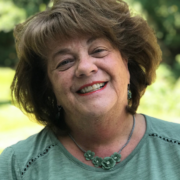

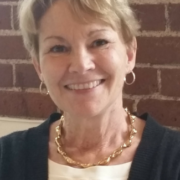
 Throughout her 33-year career at GYK Antler, Gloria Proulx has been dedicated to making a difference in her career and in the community. She has deftly balanced her professional life while also raising a family and volunteering for numerous causes. Throughout her career at GYK, she has worked as a production manager in various vertical markets including finance, healthcare, high tech, retail, education and tourism, and now serves as Culture and Operations Manager. As a key volunteer on the CASA Cares committee, Gloria collaborates with top notch GYK designer JoAnn Trahan to produce printed materials, from the invitation and signage to the evening’s beautiful program, for CASA’s largest fundraising event, CASA Cares.
Throughout her 33-year career at GYK Antler, Gloria Proulx has been dedicated to making a difference in her career and in the community. She has deftly balanced her professional life while also raising a family and volunteering for numerous causes. Throughout her career at GYK, she has worked as a production manager in various vertical markets including finance, healthcare, high tech, retail, education and tourism, and now serves as Culture and Operations Manager. As a key volunteer on the CASA Cares committee, Gloria collaborates with top notch GYK designer JoAnn Trahan to produce printed materials, from the invitation and signage to the evening’s beautiful program, for CASA’s largest fundraising event, CASA Cares.
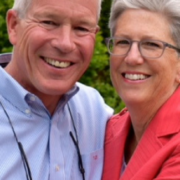

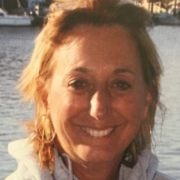
 When Heather Sweeney was preparing to retire from her extensive career in education, she saw an ad on TV that caught her eye. It was for CASA of New Hampshire, seeking volunteers to serve as advocates for children caught up in abuse or neglect cases in New Hampshire’s family courts.
When Heather Sweeney was preparing to retire from her extensive career in education, she saw an ad on TV that caught her eye. It was for CASA of New Hampshire, seeking volunteers to serve as advocates for children caught up in abuse or neglect cases in New Hampshire’s family courts.